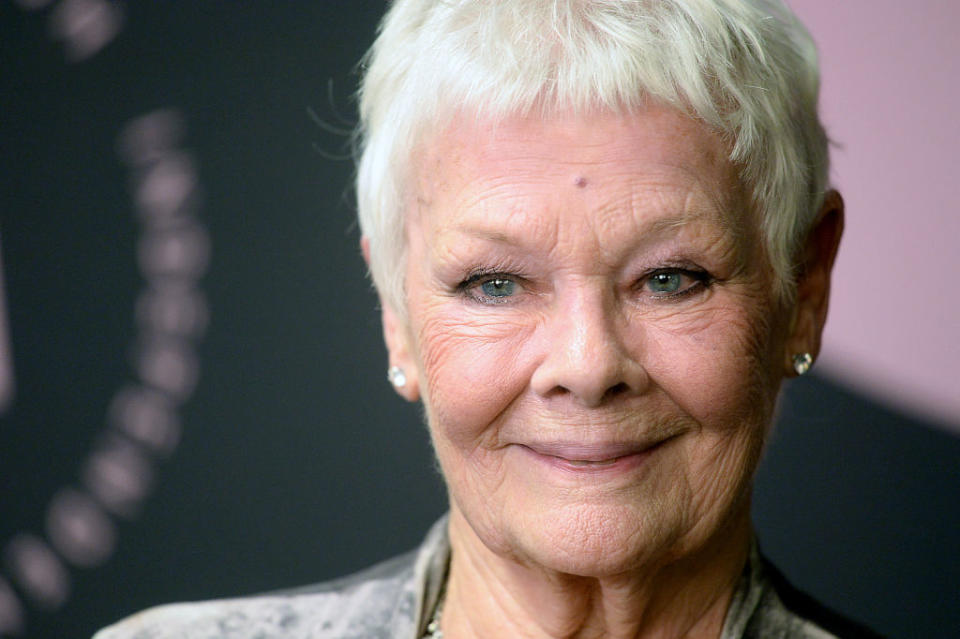Dame Judi Dench says she has ‘no option' but to be positive about her condition, what is macular disease?
Dame Judi Dench has given an update on her failing eyesight due to macular disease, sharing that she "can't see anymore".
The 88-year-old actor previously revealed that she was living with macular disease or age-related macular degeneration (AMD) – a disease that sees the deterioration of eyesight.
While appearing on BBC's Countryfile Dame Dench explained how she had "no option" but to be positive about her condition.
"I am still painting, I can't see any more," she said before adding: "Perhaps it's no worse than it used to be."
The Skyfall actor went on to say she's choosing to remain upbeat about her eyesight.
"I have no option, have I? I've no option or I'll just fall over but I've got wonderful people who help me and doesn't look as if I'm being led around... but to paint, well it's very difficult for me. But it doesn't matter, does it because it's meant to be a self-expression so you paint what you see or what you can't see."
Read more: Dame Judi Dench feels 'lucky' to have found love again after husband's death (Bang Showbiz, 2-min read)
Previously Dame Dench revealed she finds it difficult to see on film sets now due to her condition.
"I mean, I can't see on a film set anymore. And I can't see to read. So I can't see much," the James Bond actor told The Mirror. "But, you know, you just deal with it. Get on. It's difficult for me if I have any length of a part. I haven't yet found a way. Because I have so many friends who will teach me the script. But I have a photographic memory."
Despite her sight struggles the actor told BBC journalist Louis Theroux that she has no plans to retire. "I don’t want to retire. I’m not doing much at the moment because I can’t see," she said in the documentary Louis Theroux Interviews.

What is macular disease/AMD?
According to the Macular Society, macular disease is the biggest cause of sight loss in the UK affecting 1.5m people.
Macular disease, or age-related macular degeneration (AMD), is a common condition that affects the middle part of your vision and tends to occur in people in their 50s and 60s.
While it does not cause total blindness, the NHS says it can make recognising faces or reading quite difficult and, without treatment, your vision can get worse. This can take anywhere from several years (dry AMD) to several weeks (wet AMD).
The exact cause of AMD is unknown, but it has been linked to smoking, high blood pressure, being overweight and having a family history of AMD.
Watch: Countryfile: Dame Judi Dench emotional as she fulfils wish to see golden eagle
What are the different types of AMD?
There are two types of AMD: dry and wet.
"Dry AMD is the most common but less serious form of the disease affecting about 85% of patients," explains Sheraz Daya, ophthalmologist and medical director of Centre for Sight.
"The condition occurs when the cones and rods photoreceptors in the central retina become damaged and the central vision progressively deteriorates very slowly over a number of years."
Wet type AMD is the most serious type affecting approximately 15% of patients.
"The condition is so called because abnormal new vessels grow below the retina and result in leakage of fluid and blood in the macula with rapid loss of central vision within days," Daya continues.
"This condition can now be successfully slowed down by early intervention in order to prevent permanent loss of central vision."
![Macular disease is the most common cause of eyesight loss [Photo: Getty]](https://s.yimg.com/ny/api/res/1.2/n3Wgbdz.y6F5A5R13fFjPA--/YXBwaWQ9aGlnaGxhbmRlcjt3PTk2MA--/https://media-mbst-pub-ue1.s3.amazonaws.com/creatr-uploaded-images/2019-06/98f06710-97fe-11e9-bfdd-b2b38fa36f22)
What are the symptoms of macular disease?
Some symptoms of AMD include:
Blurred or distorted vision
Gaps or dark spots in vision, particularly first thing in the morning
Objects changing shape, size or colour
Words disappearing when reading
Door frames or lamp posts appearing bent
Hallucinations
"Early symptoms of AMD may include difficulty in reading, difficulty in recognising people's faces and distortions in the central vision," Daya explains.
"The sight loss usually occurs gradually over time, although it can develop very rapidly due to sudden bleeding in the central area of the retina, the macula, with loss of central vision within a few days."
What are the causes of macular disease?
The Macular Society says our age and our genes are the biggest factors in developing macular disease. But there are lifestyle risks too; smoking, poor diet, high blood pressure and obesity can all increase risk.
Can macular disease be cured?
While there is currently no treatment for dry AMD, the NHS says the people who have wet AMD may need regular eye injections and, occasionally, a light treatment called photodynamic therapy which can help to stop your vision getting worse.
For more information about macular disease visit Macular Society or call their Advice and Information Service - 0300 3030 111.
Read more on celebrity health conditions
What is aphasia? Bruce Willis’s daughter says family thought he had ‘Hollywood hearing loss’ - Yahoo Life UK, 4-min read
Sarah Ferguson embracing ‘journey back to full health’ following operation for breast cancer - The Independent, 2-min read
Christina Applegate explains why with MS 'it's never a good day': What is multiple sclerosis? - Yahoo Life UK, 6-min read


